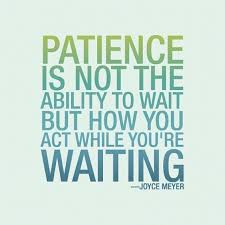Comparing: Patient Decision-Making
The Art of War 8:5.1-8:5.13
This post continues our project explaining each stanza of Sun Tzu’s work. The English and Chinese quotes are from my award-winning translation, The Art of War and The Ancient Chinese Revealed. Basic translations are written from the narrow perspective of opposing armies. These articles focus on the more general application of this philosophy to all competition. Start here for the book’s opening lines.
The text examined in this article is Section Five of Chapter 8 of The Art of War. This Section consists of one long and one short stanza, five lines of Chinese. The general topic of this chapter is Adaptability, but its Chinese title is <Nine> <Changes>. The <nine> in the chapter title is from Hexagram Nine of the I-Ching. This hexagram, called Wind Over Heaven, refers to dark clouds on the horizon, a coming storm.
In the lines below, we summarize the Chinese characters in their original order, each with a single English word shown in < > brackets. The line of Chinese is followed by an English sentence translation.
<Make> <general> <have> <five> <dangers>
You can exploit five different faults in a leader.
The topic of these stanzas is the five common mistakes from poor patience in decision making. Here, the <five> refers to Hexagram Five of the I-Ching: Water Over Heaven. This hexagram is also known as Patience. This patience requires perspective: we must keep our eye on the big picture even as a storm of change is coming. Mistakes in decision-making in these situations revolve around having too much or too little patience.
Flaws in Patience
In the lines below, we summarize the Chinese characters in their original order, each with a single English word shown in < > brackets. The line of Chinese is followed by an English sentence translation, which is limited to the military world of armies and enemies.
<Must> <die> <can> <kill>
If he is willing to die, you can kill him.
The first flaw in decision-making is being foolhardy, being too willing to take risks and losses. Courage is one of the five characteristics required of a decision-maker, but all characteristics become flaws both in their lack and in their excess.
<Must> <born> <can> <capture>
If he wants to survive, you can capture him.
Next, we can be over-anxious to get started adapting to a coming change, starting a move without proper resources or knowledge. Speed is the essence of competition, but we must be prepared to make an intelligent move.
<Angry> <speed>
He may have a quick temper.
Decision-making mistakes also arise when we react emotionally to a coming change. We must avoid reacting out of anger rather than putting our mission first. Patience gives anger time to cool.
<Can> <humiliate> <also>
You can then provoke him with insults.
Rivals or superiors can wound our pride, pressing us into make hasty decisions. We should never make decisions to prove something about our character rather than reach our goal. Patience allows us time for the sting of humiliation to fade.
<Honest> <clean> <can> <disgrace>
If he has a delicate sense of honor, you can disgrace him.
We must be patient with ourselves. We must expect that we will make embarrassing mistakes. We all miss the mark more often than we want.
<Love> <people> <can> <trouble>
If he loves his people, you can create problems for him.
We must patiently consider how realistic our expectations from our supporters are in a time of change. Changes in competitive conditions changes relationships in unexpected ways. Our past affections are no promise of future effectiveness.
<All> <this> <five> <dangers>
In every situation, look for these five weaknesses.
This impatience in our own decision-making create more problems for our competitive progress than others do, especially during times when change is coming.
<General> <’s> <mistake> <also>
They are common faults in commanders.
Others will make these mistakes as well. Decisions-makers often overreact in the face of a coming change. Panic is more common than patience in these situations.
<Use> <war> <disaster> <also>
They always lead to military disaster.
Just as a the coming changes can create opportunities, the impatience of ourselves and others will create openings for as well. We must be prepared use all such openings.
Poor Decisions
Our competitive efforts can be overturned by a coming change in the competitive environment, but impatience in our decision-making is a greater danger.
<Overturn> <army> <kill> <general>
To overturn an army, you must kill its general.
Making impatient decisions endangers not only our organizations but our positions within those organizations
<Must> <by> <means> <of> <five> <dangers>
To do this, you must use these five weaknesses.
This impatient decision-making creates problems where they would not otherwise arise. Competitive markets are more likely to panic when facing a coming change than to use patience. The truth is that most changes take much longer to arrive than we think. And often they never arrive at all.
<No> <can> <no> <examine> <also>
You must always look for them.
We must always be examining the horizon for a coming storm, but when a storm is coming, we must examine ourselves to make sure that we are not over-reacting. We must avoid overconfidence, hastiness, anger, pride, disappointment in ourselves, and too much devotion to others.



